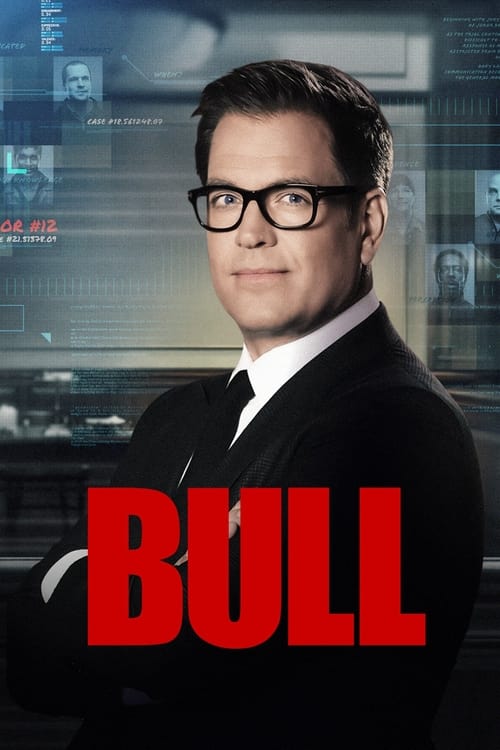
Ask Your Own Question
What is the plot?
In the episode "3rd Floor," the story begins with Sam and Tim, the two main characters, at their advertising agency in Detroit. They are excited about a new project that involves creating a commercial for a local car dealership. The duo is enthusiastic and eager to impress their client, but they quickly realize that they need to come up with a unique and compelling idea to stand out.
As they brainstorm, they decide to visit the car dealership to get a better feel for the environment and the clientele. Upon arriving, they are greeted by the dealership's owner, who is enthusiastic but also has high expectations for the commercial. He expresses his desire for something that captures the essence of Detroit and its automotive culture. This sets the stage for Sam and Tim to think creatively about how to incorporate local elements into their pitch.
Back at the office, Sam and Tim begin to develop their concept. They decide to shoot the commercial on the third floor of their building, which is currently unused and cluttered. They envision transforming the space into a vibrant set that reflects the spirit of Detroit. However, as they start to clean and prepare the area, they encounter various obstacles, including a lack of resources and time constraints. Their determination to make the commercial work drives them to push through these challenges.
As they work on the third floor, they also deal with personal issues. Tim is struggling with his relationship with his girlfriend, who is frustrated with his commitment to work over their time together. This subplot adds emotional depth to Tim's character, as he grapples with balancing his professional ambitions and personal life. Meanwhile, Sam is focused on the project but also feels the pressure of their client's expectations.
The day of the shoot arrives, and tensions are high. Sam and Tim are nervous but excited to finally present their vision. They have gathered a small crew and enlisted the help of friends to act in the commercial. As they begin filming, things do not go as planned. The actors struggle with their lines, and the set is not coming together as they had envisioned. Frustration mounts, and the duo must think on their feet to salvage the situation.
In a pivotal moment, Sam and Tim decide to embrace the chaos and incorporate the mistakes into the commercial. They encourage the actors to improvise and bring their own personalities into the performance. This decision leads to unexpected and humorous moments that ultimately resonate with the spirit of Detroit. The shoot becomes a celebration of the city's character, rather than a polished advertisement.
After a long day of filming, they wrap up the shoot feeling a mix of exhaustion and exhilaration. They are unsure how the final product will turn out, but they are proud of their ability to adapt and create something unique. The episode concludes with them presenting the finished commercial to the dealership owner, who is thrilled with the result. The commercial captures the essence of Detroit, and Sam and Tim realize that their unconventional approach has paid off, solidifying their bond as partners in both work and friendship.
What is the ending?
In the ending of "3rd Floor," Sam and Tim's efforts to save their advertising agency from being evicted culminate in a chaotic confrontation with their landlord. They ultimately manage to secure their space, but not without a series of humorous and tense moments that test their friendship and resolve.
As the episode unfolds, the tension builds around the impending eviction of their office on the third floor. Sam and Tim are determined to fight for their space, which represents not just their business but their dreams and aspirations. They devise a plan to confront their landlord, who is portrayed as a stern and unyielding figure.
In the final scenes, the duo gathers their courage and heads to the landlord's office. The atmosphere is thick with anxiety as they prepare to plead their case. When they arrive, they find themselves in a heated discussion, where emotions run high. Sam, feeling the weight of their situation, passionately argues for their right to stay, while Tim supports him, albeit with his characteristic humor.
The confrontation escalates, leading to a moment of desperation where they must prove their worth as tenants. In a surprising twist, they manage to charm the landlord with their creativity and determination, showcasing their unique approach to advertising. This moment of connection allows them to negotiate a deal that keeps them in their beloved office.
As the episode concludes, Sam and Tim celebrate their victory, relieved and exhilarated. They realize that their friendship and partnership are what truly matter, and they reaffirm their commitment to each other and their business. The episode ends on a high note, with the two of them feeling a renewed sense of purpose and camaraderie.
In summary, the ending of "3rd Floor" highlights the importance of friendship, resilience, and the power of creativity in overcoming obstacles. Sam and Tim emerge victorious, not just in saving their office but in strengthening their bond as partners in both business and life.
Is there a post-credit scene?
In the episode "3rd Floor" of Detroiters, there is indeed a post-credit scene. After the main credits roll, the scene features Sam and Tim sitting in their office, reflecting on the events that just transpired. They are both visibly exhausted but also amused by the chaos of the day. As they share a laugh, Tim suddenly gets serious and suggests they should consider moving their office to the third floor of their building, which had been a point of contention throughout the episode. Sam, initially skeptical, starts to warm up to the idea, leading to a humorous exchange about the potential benefits and drawbacks of such a move. The scene captures their camaraderie and the light-hearted nature of their friendship, leaving viewers with a sense of warmth and humor as the episode concludes.
What happens when Sam and Tim try to get the elevator fixed in the office building?
In this episode, Sam and Tim face the challenge of getting the elevator fixed in their office building, which leads to a series of comedic mishaps. They attempt to navigate the building's third floor, which is filled with quirky characters and unexpected situations, highlighting their determination and the absurdity of their work environment.
How do Sam and Tim's interactions with the third-floor tenants affect their day?
As Sam and Tim interact with the eccentric tenants on the third floor, they experience a mix of frustration and humor. The tenants' odd behaviors and requests create a chaotic atmosphere, forcing Sam and Tim to adapt and improvise, ultimately testing their patience and friendship.
What role does the character of the building manager play in the episode?
The building manager plays a pivotal role in the episode by embodying the bureaucratic challenges that Sam and Tim face. His dismissive attitude towards their concerns about the elevator adds to the comedic tension and highlights the duo's struggle against the inefficiencies of their workplace.
How do Sam and Tim's personalities complement each other during their elevator ordeal?
Throughout the elevator ordeal, Sam's more laid-back and optimistic demeanor contrasts with Tim's anxious and often cynical outlook. This dynamic creates a balance as they navigate the challenges together, showcasing their friendship and the way they support each other in stressful situations.
What comedic elements are present in the interactions between Sam, Tim, and the third-floor tenants?
The comedic elements in their interactions include misunderstandings, physical comedy, and the absurdity of the tenants' requests. These moments are heightened by the characters' exaggerated reactions and the increasingly ridiculous scenarios they find themselves in, contributing to the overall humor of the episode.
Is this family friendly?
"Detroiters," season 1, episode 6 titled "3rd Floor," contains some elements that may not be suitable for all family audiences. Here are a few potentially objectionable or upsetting aspects:
-
Mature Language: The episode features instances of strong language that may not be appropriate for younger viewers.
-
Adult Themes: There are discussions and situations that touch on adult relationships and workplace dynamics, which may be confusing or uncomfortable for children.
-
Humor Style: The show's humor often leans towards the irreverent and may include jokes that are more suitable for an adult audience, potentially leading to misunderstandings for younger viewers.
-
Situational Comedy: Some scenes may involve awkward or embarrassing situations that could be distressing for sensitive viewers.
These elements contribute to a comedic tone that may not resonate well with all family members, particularly younger children or those who are sensitive to such content.
























